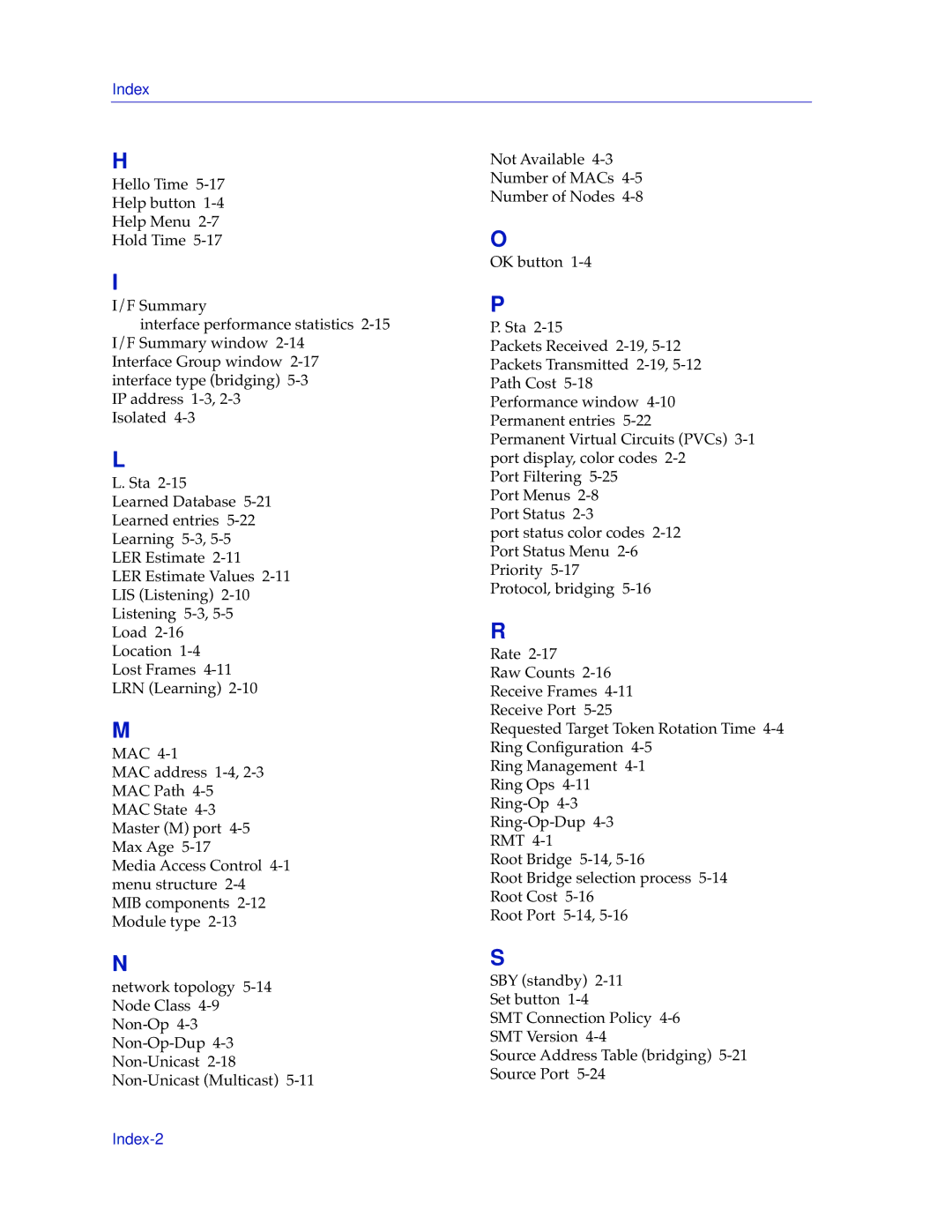H
Hello Time 5-17
Help button 1-4
Help Menu 2-7
Hold Time 5-17
I
I/F Summary
interface performance statistics 2-15 I/F Summary window 2-14 Interface Group window 2-17 interface type (bridging) 5-3
IP address 1-3,2-3 Isolated 4-3
L
L. Sta 2-15
Learned Database 5-21
Learned entries 5-22
Learning 5-3,5-5
LER Estimate 2-11
LIS (Listening) 2-10
Listening 5-3,5-5
Load 2-16
Location 1-4
Lost Frames 4-11
LRN (Learning) 2-10
M
MAC 4-1
MAC address 1-4,2-3 MAC Path 4-5 MAC State 4-3 Master (M) port 4-5 Max Age 5-17
Media Access Control 4-1 menu structure 2-4 MIB components 2-12 Module type 2-13
N
network topology 5-14 Node Class 4-9Non-Op4-3Non-Op-Dup4-3Non-Unicast2-18Non-Unicast (Multicast) 5-11
Not Available 4-3
Number of MACs 4-5
Number of Nodes 4-8
O
OK button 1-4
P
P. Sta 2-15
Packets Received 2-19,5-12 Packets Transmitted 2-19,5-12 Path Cost 5-18 Performance window 4-10 Permanent entries 5-22 Permanent Virtual Circuits (PVCs) 3-1 port display, color codes 2-2
Port Filtering 5-25 Port Menus 2-8 Port Status 2-3
port status color codes 2-12 Port Status Menu 2-6 Priority 5-17
Protocol, bridging 5-16
R
Rate 2-17
Raw Counts 2-16 Receive Frames 4-11 Receive Port 5-25
Requested Target Token Rotation Time 4-4 Ring Configuration 4-5
Ring Management 4-1 Ring Ops 4-11Ring-Op4-3Ring-Op-Dup4-3 RMT 4-1
Root Bridge 5-14,5-16
Root Bridge selection process 5-14 Root Cost 5-16
Root Port 5-14,5-16
S
SBY (standby) 2-11 Set button 1-4
SMT Connection Policy 4-6 SMT Version 4-4
Source Address Table (bridging) 5-21 Source Port 5-24
